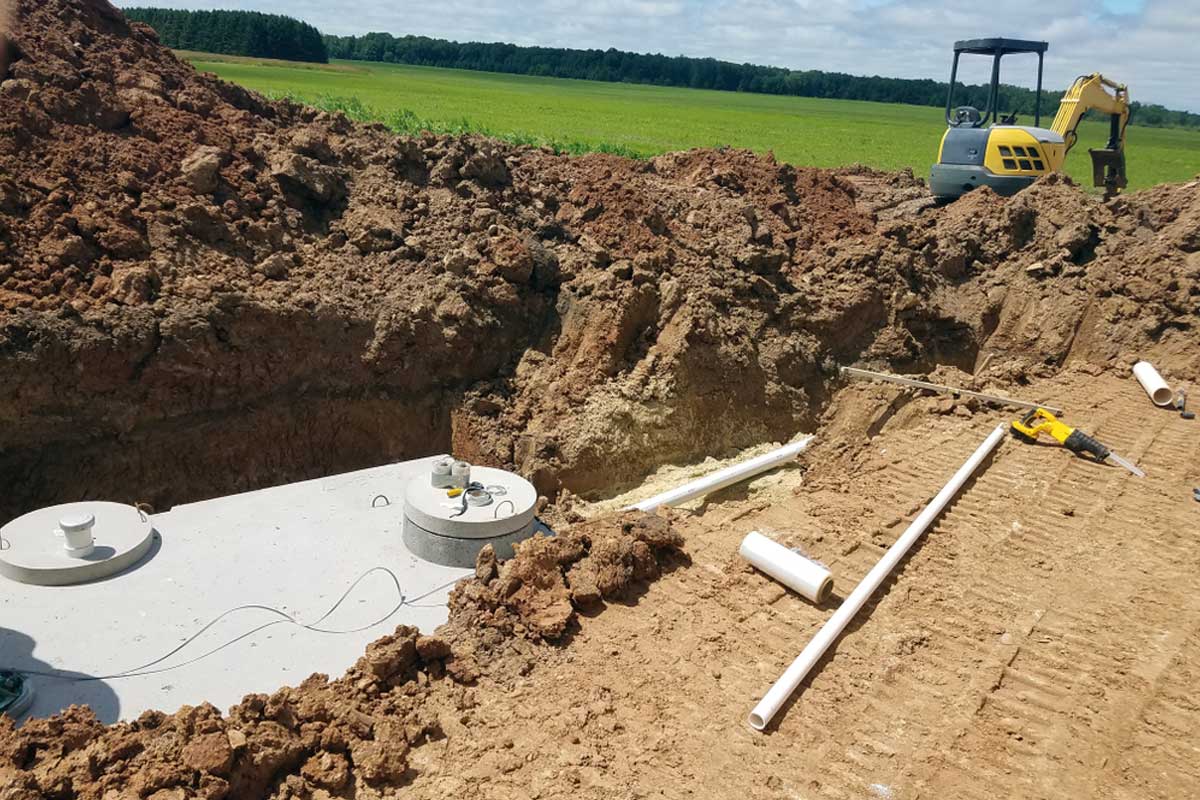Most likely, you have a method for managing your wastewater regardless of whether you live in a property that has a sewer line that is municipal. Septic systems are efficient and eco-friendly way to handle wastewater. However, they’ll require regular maintenance and may eventually need to replaced. This article will provide you with all the information you need to know about managing the costs of septic systems for installation and replacement.

Installation of a Septic System
Even though a septic system is an expensive investment it is essential to make sure that your home’s wastewater is being treated safely and efficiently. The cost of installing a septic tank can vary depending on many aspects.
Size of the property: Larger homes will require bigger system of septic to handle the increase in wastewater production. Because of this, larger properties will generally require more extensive and expensive septic systems.
The size of your septic system will be affected by the number of bedrooms. New Hampshire requires that at least a 1,000-gallon tank is installed to accommodate three bedrooms. A 250-gallon tank should be installed for each additional room.
Site conditions: How terrain of your property as well as the soil kind and permeability affect the cost of installation. A more difficult terrain or soil conditions might require an additional excavation or the use of specialized equipment and will add to the overall price.
Zoning or permit requirements: The permitting and/or zoning requirements are subject to change depending on the state and/or locale. Additional fees can be charged for permits and inspections.
The price of the New Hampshire septic tank installation can range from $5,000 to $10,000 in the average, based on the above-mentioned factors. However, it is essential to keep in mind that this is just an estimate and that the final cost can vary in accordance with the individual situation.
Cost of repairing a septic system
Based on the way they are utilized and maintained, septic systems may last for 20 to 40 years. A septic tank that’s in need of repair will have to be replaced. It’s generally cheaper to replace the entire system than to cost to fix it. Signs that your septic system may require replacement include slow drains as well as the presence of standing water in your backyard and sewage backups.
The price of a septic system replacement is contingent on the same aspects as installing, including dimensions of the property, amount of bedrooms as well as the site’s conditions. A septic system replacement will typically cost more than a brand-new one since the old system has to be removed and disposed of in a proper manner.
On average, the cost of replacing a septic system in New Hampshire ranges from $10,000 to $25,000, based on the above variables. Again, it is essential to keep in mind that this is just an estimate and the final price may vary depending on individual circumstances.
Tips for managing the cost of your Septic tank
Regular maintenance: Regular septic system maintenance, which includes the pumping process and inspection, can prolong the life of your system and help prevent costly repairs or replacement.
Pick the right contractor Selecting a reliable and experienced contractor will make sure that your septic system is properly installed and in line with standards, thus saving you money on costly repairs or penalties for non-compliance.
Avoid flushing non-biodegradable items The flushing of non-biodegradable products such as sanitary supplies such as wipes, diapers, or wipes, can clog your septic system and create expensive backups.
Conserve water: Conserving water will reduce the workload on the septic system and increase its lifespan.
Pick the appropriate system for your property The right design of septic system for your property will help you save money on cost of installation and maintenance.
Proper septic tank care is vital to keep your system safe and operational. Maintaining your septic tank can be a money-saving option and can help you avoid costly repairs and reduce the possibility of groundwater contamination. It also helps stop odors and backups. Regular pumping is a great method to increase the effectiveness of the system and avoid costly damage due to cracks, clogs or other issues. Regular inspections are vital as they can detect any potential issues early. Implementing these measures will help to maintain a secure and effective system for septic that is in compliance to environmental standards. A written maintenance plan for your septic tanks will help you save time and money. You’ll also enjoy peace of mind knowing your commercial or home will have a functioning system for a long time.
For more information, click cost to install septic tank and leach field
